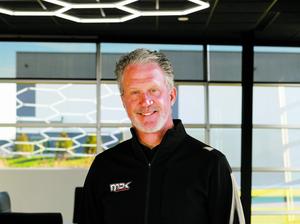
Most Central Ohio startups have the grit and spending prudence to "power through" the predicted economic downturn this year, according to local venture capital investors advising them.
VC investing is expected to slow again nationwide this year, and more rounds will be at decreased valuations – even though firms set records raising new funds from which to invest, according to VC outlooks from PitchBook and Crunchbase. However, Crunchbase projects an increase in mergers and acquisitions.
"It’s not all doom and gloom," Rev1 Ventures CEO Tom Walker said. "We can manage through this, and entrepreneurs can manage through this."
The big hits and mass job cuts are affecting mainly the largest and latest-stage tech companies, including long-public ones like Amazon and Salesforce that announced layoffs this week. The largest tech cuts in Columbus last year were at unicorns.
Central Ohio's startups for the most part specialize in business-to-business software that generates revenue quickly.
Early startups working from seed stage toward Series A funding already are cautious in their spending, and it takes time for recession effects to "trickle down" to them, said Mark Shary, co-founder and managing partner of Dublin-based VC firm Tamarind Hill.
"Regardless of what this cycle looks like, the blocking-and-tackling companies are going to power through – and yes, we're good at that (in Central Ohio)," Shary said.
The Midwest has seen the emergence of several fresh VC funds in the past few years, Walker said. Drive Capital raised the outsized $1 billion over the summer, but most of the new funds are $50 million or less, and investing at early stages – including Tamarind Hill's $50 million Fund II announced at year's end.
"Most of those are funds investing in capital-efficient startups: They’re building from stage to stage; they’re building products with customers in mind from the get-go," Walker said. "In a downturn like this, those are the best entrepreneurs – they already have a market they’re selling into. There’s going to be real growth opportunities for them."
Also, past downturns have spurred entrepreneurship, as people who lose jobs may choose to open businesses.
Rev1's portfolio companies are "all prepping," Walker said, by cutting unnecessary expenses – in some cases letting go staff, or not filling roles – all while listening to customer feedback to build something that will generate revenue. The firm recommends raising or preserving capital to cover 12 to 18 months' worth of expenses.
"If you plan for 18 months and the recession lasts six months, you’re going to come out of this great," Walker said.
Companies cutting jobs now had over-hired thinking pandemic-driven demand would continue indefinitely or because they believed VC "hype," said Bill Baumel, managing director of Columbus-based Ohio Innovation Fund.
"Luckily for the most part our CEOs are between prudent and super-prudent – no real crazy spenders," Baumel said via email.
The advice VCs are giving early startups actually is pretty much the same as always, Shary said.
"You have to have really concrete goals that help you accomplish what you need to accomplish with the resources you have," Shary said.
The difference for now is investors are less optimistic and will "ask you for real proof points," he said. "Just be sure you hit them."
The pressures today are not the same as the 2001 dot-com bust that hit products that had become irrelevant, Baumel said, nor the financial meltdown of 2008. Interest rates, inflation and supply chain issues eventually will recede.
"We could start looking strong toward the fall of 2023 and set ourselves up for a nice run in 2024 and beyond," Baumel said via email. "I'm not sure if the worst is behind us (yet)."
U.S. VC firms raised record amounts in 2022. While those investors may be cautious for now, they typically take up to five years to deploy funds, Walker said.
"The money is going to get to the street," Walker said. "The question is do they slow investment pace in the first two years given the market, or maybe slow down year one to see what happens in the economy."
Firms this year might concentrate more on companies already in their portfolios, Shary said, and Silicon Valley firms might be less likely to look for deals in the middle of the country.
"I'm still bullish on good companies," he said. "If you've crossed enough risk hurdles, the capital will find you."
Rev1, a nonprofit, also advises startups, curates a network of Central Ohio companies that can be first customers or discounted vendors, and rents office and lab space. It could look to raise more investment funds; it last raised $30 million in 2021.
"Our funds have done well, so our (limited partner) investors are very supportive," Walker said. "We’re here to help close those capital gaps for our entrepreneurs in the region."






